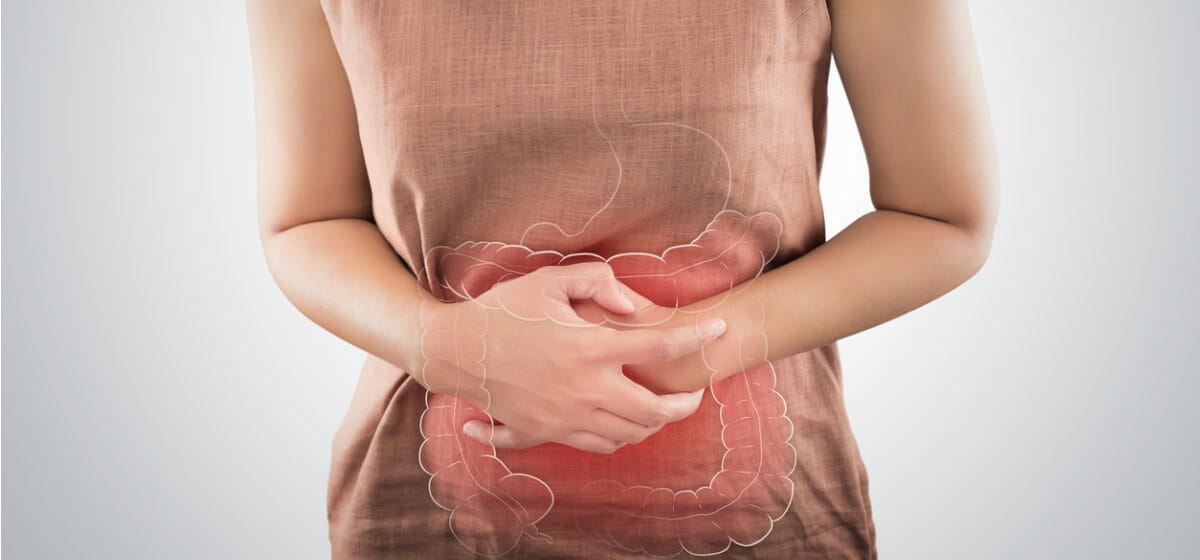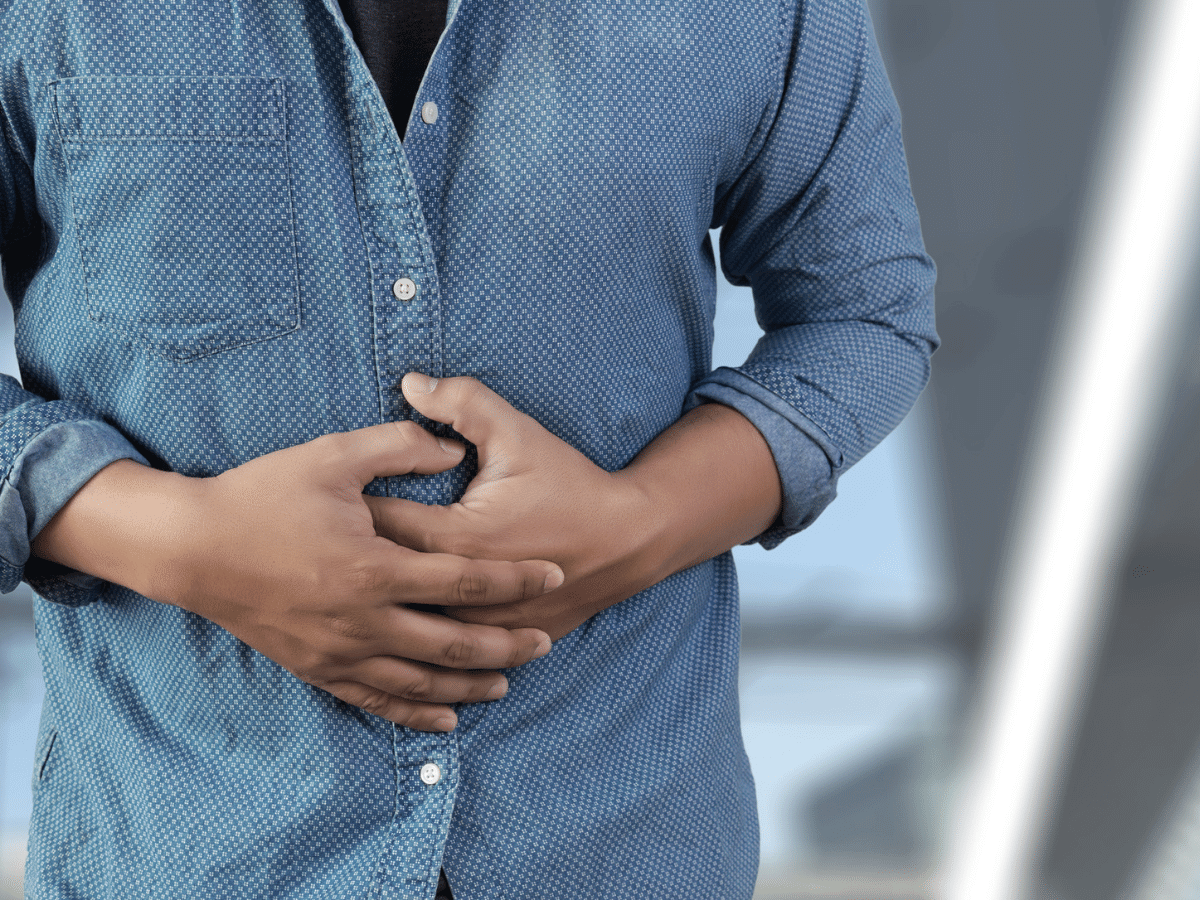Why Does My Stomach Hurt?

Quick anatomy lesson: When most people ask, “Why does my belly hurt?” or “Why do I have bad stomach pain?” they may not technically mean the stomach. Pain in this region can also involve the intestines, gallbladder, pancreas, or appendix.
Since nothing can ruin a good day (or week!) like a bellyache, we asked two doctors with the Baptist Health Medical Group to help us figure out what might be causing that stomach pain and belly aches — and when you should seek medical help.
Here’s what one of our surgeons, Dr. Barbara Michna had to say about some of the most common stomach ache causes.
Causes of Stomach Pain
Stomach virus (viral gastroenteritis)
If your pain comes with vomiting, diarrhea, fever, and nausea, you may have caught a stomach virus, which can be spread through human contact, sharing food or by touching contaminated objects (so wash, wash, wash those hands). It usually resolves within a week, but call your doctor if you have unrelenting diarrhea for three days straight or become dehydrated. The symptoms of food poisoning are similar but hit more suddenly — usually two to eight hours after eating the tainted item.
Ulcers
These sores can pop up in the lining of the stomach or small intestine. They’re mostly caused by either overuse of nonsteroidal anti-inflammatory drugs (NSAIDs) such as ibuprofen, naproxen, and aspirin, or H. pylori bacteria. “Some people describe a burning sensation in the stomach, which may get better when they eat, although sometimes food makes it worse,” Dr. Woolfolk says. If you’re asking yourself, why is my stomach hurting, try to locate the pain. Ulcer pain may occur between the breastbone and navel.
Irritable Bowel Syndrome
Among the common reasons for abdominal pain is irritable bowel syndrome. IBS is a common disorder of the large intestine characterized by cramping, abdominal pain, bloating, gas, and diarrhea or constipation. It is one of the most common causes of abdominal pain. Although it doesn’t permanently change the digestive tract or cause a greater risk for cancer, it can impair your quality of life. It can often be managed by altering your diet or reducing stress.
Inflammatory Bowel Disease
This term refers to chronic inflammation that can damage the gastrointestinal tract. It encompasses both Crohn’s disease, which can affect the entire digestive tract but usually involves the small intestine, as well as ulcerative colitis, which affects the colon and rectum. The major symptoms for both include diarrhea, abdominal pain, and weight loss. IBD is a risk factor for colorectal cancer, so patients should be monitored carefully.
Celiac disease
If you have bloating, gas, nausea, diarrhea and what Dr. Michna calls “generalized abdominal discomfort,” you may have this autoimmune disorder, which is an allergy to gluten that can damage the small intestine. “Celiac disease looks similar to irritable bowel syndrome and is one of the most underdiagnosed conditions we see,” says Dr. Michna, “noting that occasionally celiac patients will have constipation instead of diarrhea.”
Gallstones
These hardened bile deposits often cause no symptoms but can become lodged in either the bile or pancreatic ducts, which can cause jaundice, infection, and inflammation. Dr. Michna describes gallbladder discomfort as “a kind of squeezing pain in the upper right section of the abdomen.” Nausea and vomiting may also be present, and pain is sometimes felt in the middle abdomen, between the shoulder blades or near the ribs.
Endometriosis
Endometriosis is one of the more common reasons for stomach ache in females. Women with especially painful periods and heavy bleeding, paired with digestive symptoms such as constipation or diarrhea that worsen around menstruation, may have this gynecological disorder. Sometimes mistaken for IBS, endometriosis happens when the tissue that normally lines the inside of the uterus grows outside the uterine wall.
When to See a Doctor for Stomach Pain
Schedule a visit with your doctor if:
- Your symptoms come and go for at least a month, and don’t improve with over-the-counter remedies.
- You are experiencing weight loss or decreased appetite for no obvious reason.
- You are a woman with chronic bloating, lower abdominal discomfort, pressure and constipation, ask your doctor about ovarian cancer testing.
Seek emergency medical treatment if:
- You have, as Dr. Michna says, “severe, unrelenting abdominal pain where you can’t even get comfortable,” which could indicate appendicitis.
- You vomit blood — this could be several conditions, including esophageal varices (dilated veins) or a bleeding ulcer.
- You have black, tarry stools, which could indicate bleeding from the stomach or colon, or any bloody stool that concerns you.
- You are also having chest pain. Although some GI conditions such as gastroesophageal reflux disease (GERD) or gallbladder disease may cause discomfort in this area, it’s essential to first rule out a problem with your heart.
- You have been previously diagnosed with a hiatal hernia and you are now experiencing severe pain in the chest or abdomen, nausea, vomiting, or the inability to pass gas or
- These symptoms may indicate a strangulated hernia or obstruction.
Evaluate Causes of Your Pain with Baptist Health
Try the Baptist Health free online health assessments to evaluate your health risks today.



